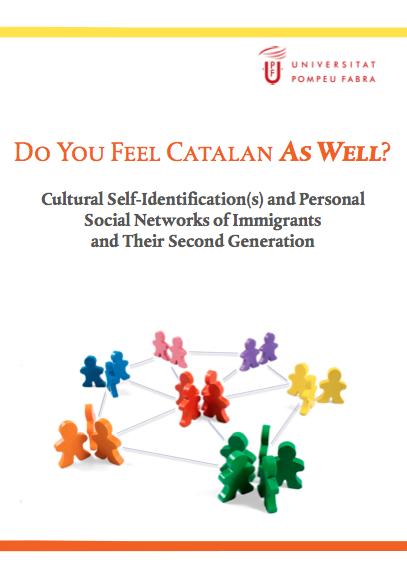National
2013-2015 RecerCaixa
Experiencing Cultural Diversity: the Socio-Cognitive Consequences of Interculturalism
This 24-months research project is funded by RecerCaixa.
This research program is framed in a social psychological perspective and aims to explore the relationship between intercultural experiences and various socio-cognitive outcomes. Specifically, this two study project will provide insight into how multicultural experiences and intercultural contact (particularly when they are meaningful, frequent, and stereotype challenging) shape our socio-cognitive abilities and how these abilities can, in turn, benefit individuals' performance in creative problem-solving and innovation. The set of studies proposed in the research program will use both correlational and experimental designs. The scientific implications of this project relate to a better understanding of how the experience of cultural diversity affects individuals psychologically. The social implications of this work will address the design, management, and implementation of intercultural practices (in educational contexts and beyond) that adequately capitalize on the possible socio-cognitive benefits of diversity (e.g., higher innovation and prejudice reduction).
The project is directed by ICREA Professor Veronica Benet-Martínez and was coordinated by the PhD student Eva Maciocco, all members of the Interdisciplinary Research Group in Immigration (GRITIM-UPF) at the Department of Social and Political Sciences at Pompeu Fabra University of Barcelona (UPF). Please, contact Elia Soler ([email protected]) for more information.
For further information on the project click HERE.
2011-2012 ARAFI
Do You Feel Catalan As Well? Cultural Self-Identification(s) and Personal Social Networks of Immigrants and Their Second Generation - AGAUR - ARAFI - Generalitat de Catalunya
Project financed by Agència de Gestió d'Ajuts Universitaris i de Recerca (AGAUR) of the Government of Catalonia, under ARAFI 2011.
The study is framed in a psychological perspective (social and transcultural psychology). It proposes a new vision of the acculturation processes focused on (1) the multidimensionality, diversity, and dynamics of cultural identities, (2) the importance of personal networks and (3) the cognitive and social capital of people. Moreover, the research aims at providing data that would contribute to the design and implementation of intercultural policies and practices.
The project is directed by ICREA Professor Veronica Benet-Martínez and coordinated by Project Manager Eva Maciocco and Ph.D. candidate Lydia Repke, all three members of the Interdisciplinary Research Group in Immigration (GRITIM-UPF) at the Department of Social and Political Sciences at Pompeu Fabra University of Barcelona (UPF). Please, contact Lydia Repke ([email protected]) for more information.
For further details about the project click the brochure on the right:
2011-2013 John Templeton Foundation
Taking Evil into the Lab: Exploring the Frontiers of Morality and Individual Differences
Why were the atrocities of World War II committed? How is that some soldiers committed horrible atrocities at the prison of Abu-Grahib? Some researchers, Philip Zimbardo being one of the most prominent, provided a partial explanation to this phenomenon, explaining it from a situational standpoint. That is, situational forces are so powerful and influential social roles so large that override individual personality and the ability to act in a straight and moral way. This explanation has transcended science to the folk culture, even producing films like The Experiment, or reality shows on the BBC.
However, it is rarely mentioned that in those classic experiments of Milgram, Zimbardo and Latané, not all subjects behaved immorally. Situations and social influences had a great capacity to influence behavior, but not in all subjects. In the famous Milgram experiment, used to explain the atrocities that were committed by Nazis on the Jewish people, almost one third of the participating subjects refused to continue the experiment. Why these subjects did not wish to continue? The most likely explanation is that some factors in their inner self prevented to continue them participating in the experiment.
These individual characteristics are now known as personality traits and character. Indeed, since the 1970s, there has been virtually no study that has tried to explain why some individuals behaved morally in those experiments. Moreover, at present it is not possible to replicate them in the original way because of clear ethical limitations. Some of those experiments have been recently replicated in virtual reality environments. This gives us the chance to investigate individual characteristics that could affect the fact that a participant behave morally in the experiment, but with appropriate ethical safeguards.
In this ambitious project, we aim to answer several questions: 1) The fact that someone behave immorally has to do with individual characteristics? 2) People who behave immorally in a particular situation do equally behave immorally in others? 3) How general are, if any, these individual characteristics that may explain immoral behavior? 4) What is the real role of situations in immoral behavior? and 5) with which state-of-the-art technologies can we reach groundbreaking conclusions about the character?
To carry out this study, we will use new technologies to simulate classic experiments of social psychology in virtual reality environments. Moreover, we will also analyze genetic data and brain functioning of the participants in the study. In addition, we will take advantage of more than 40 years of research in personality psychology, which have improved the tools we have to assess the character.
Altogether, we intend to take Evil into the laboratory in order to study if people behave immorally because of their character, or because the circumstances of the situation they may encounter.

